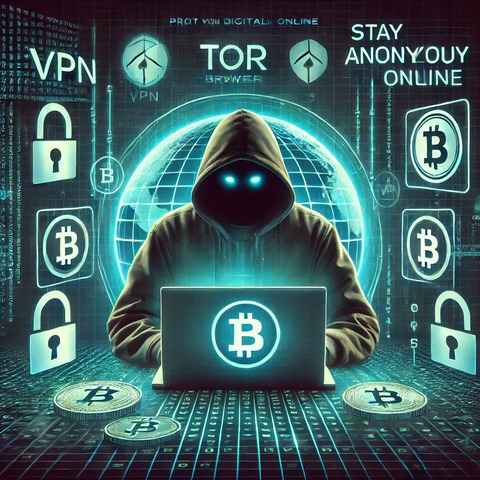Protecting Your Digital Privacy: How to Stay Anonymous Online

Suppose, you are walking around with a huge sign with your name, address, and favourite things written on it. Businesses, crackers, and governments are monitoring everything you do online—what you look at on the web, what you shop for, and what you search for. To avoid being traced, you have to remain anonymous online.
How Can You Stay Anonymous?
Just as you use a disguise when you're real-life, here you can remain anonymous online using various tools:
VPN (Virtual Private Network)
- A VPN's like a magic tunnel that makes you invisible by not revealing where you're originating from.
- Illustration: You are based in India but mask your location behind a VPN and it appears like you're within the USA.
Tor Browser
- This browser uses a lot of secret tunnels for bouncing your internet connection so your true identity becomes unknown.
- Example: A reporter in an oppressive nation uses Tor to securely read the news.
Private Search Engines
- Google tracks what you search. Use DuckDuckGo or Startpage to prevent them from gathering your data.
- Example: Instead of receiving shoe ads after searching "buy sneakers," you see nothing.
Secure Messaging Apps
- WhatsApp and Facebook Messenger vacuum up your data. Use Signal or Session for secure chats.
- Example: When you text your friend on Signal, even hackers can't see your messages.
Anonymous Payments
- When you purchase stuff online, don't use your actual credit card. Use cryptocurrency (such as Bitcoin or Monero) or prepaid gift cards instead.
- Example: If you purchase a book using Bitcoin, your name remains anonymous.
Block Browser Tracking
- Websites gather information about your device. Use Brave Browser or Tor to prevent this.
- Example: If you come to a news site, they won't have any idea where you are from or what sites you're going to.
Disposable Emails
- When a site requests your email, don't give your actual one. Provide a temporary email from TempMail or SimpleLogin.
- Example: You register for a free game without providing your personal email.
Real-Life Scenarios
- Avoiding Government Spies: John resides in a nation that monitors its citizens online. He employs a VPN and Signal to remain secure.
- Bypassing Blocked Websites: Sarah's workplace has blocked Instagram. She uses a VPN to access Instagram.
- Making an Anonymous Purchase: Mike purchases a laptop with Monero and has it delivered to a PO Box rather than his house.
Common Mistakes That Break Your Privacy
Even with the use of these tools, certain errors will give away your identity:
- Logging onto Facebook over Tor or a VPN.
- Sharing personal information on social media.
- Using the same password everywhere.
- Opening dodgy links.
Final Words
Nothing makes you 100% anonymous, but doing all of the above with VPNs, Tor, private messaging, and intelligent browsing combined can ensure your safety online.




